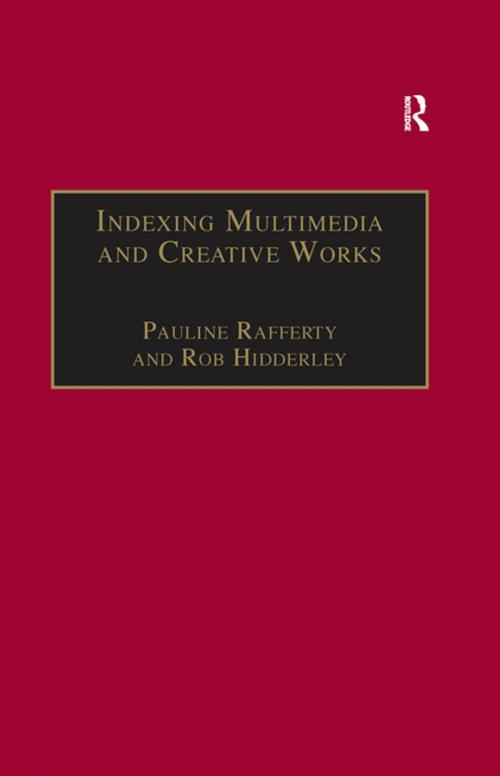Indexing Multimedia and Creative Works
The Problems of Meaning and Interpretation
Business & Finance, Management & Leadership, Planning & Forecasting| Author: | Pauline Rafferty, Rob Hidderley | ISBN: | 9781351928120 |
| Publisher: | Taylor and Francis | Publication: | March 2, 2017 |
| Imprint: | Routledge | Language: | English |
| Author: | Pauline Rafferty, Rob Hidderley |
| ISBN: | 9781351928120 |
| Publisher: | Taylor and Francis |
| Publication: | March 2, 2017 |
| Imprint: | Routledge |
| Language: | English |
Indexing and information retrieval work properly only if language and interpretation are shared by creator and user. This is more complex for non-verbal media. The authors of Indexing Multimedia and Creative Works explore these challenges against a background of different theories of language and communication, particularly semiotics, questioning the possibility of ideal multimedia indexing. After surveying traditional approaches to information retrieval (IR) and organization in relation to issues of meaning, particularly Panofsky’s ’levels of meaning’, Pauline Rafferty and Rob Hidderley weigh up the effectiveness of major IR tools (cataloguing, classification and indexing) and computerised IR, highlighting key questions raised by state-of-the-art computer language processing systems. Introducing the reader to the fundamentals of semiotics, through the thinking of Saussure, Peirce and Sonesson, they make the case for this as the basis for successful multimedia information retrieval. The authors then describe specific multimedia information retrieval tools: namely the Art and Architecture Thesaurus, Iconclass and the Library of Congress Thesaurus of General Materials I and II. A selection of multimedia objects including photographic images, abstract images, music, the spoken word and film are read using analytical and descriptive categories derived from the literature of semiotics. Multimedia information retrieval tools are also used to index the multimedia objects, an exercise which demonstrates the richness of the semiotic approach and the limitations of controlled vocabulary systems. In the final chapter the authors reflect on the issues thrown up by this comparison and explore alternatives such as democratic, user-generated indexing as an alternative . Primarily intended for third-year undergraduate and postgraduate information studies students, the breadth and depth of Indexing Multimedia and Creative Works will also make it relevant and fascinating rea
Indexing and information retrieval work properly only if language and interpretation are shared by creator and user. This is more complex for non-verbal media. The authors of Indexing Multimedia and Creative Works explore these challenges against a background of different theories of language and communication, particularly semiotics, questioning the possibility of ideal multimedia indexing. After surveying traditional approaches to information retrieval (IR) and organization in relation to issues of meaning, particularly Panofsky’s ’levels of meaning’, Pauline Rafferty and Rob Hidderley weigh up the effectiveness of major IR tools (cataloguing, classification and indexing) and computerised IR, highlighting key questions raised by state-of-the-art computer language processing systems. Introducing the reader to the fundamentals of semiotics, through the thinking of Saussure, Peirce and Sonesson, they make the case for this as the basis for successful multimedia information retrieval. The authors then describe specific multimedia information retrieval tools: namely the Art and Architecture Thesaurus, Iconclass and the Library of Congress Thesaurus of General Materials I and II. A selection of multimedia objects including photographic images, abstract images, music, the spoken word and film are read using analytical and descriptive categories derived from the literature of semiotics. Multimedia information retrieval tools are also used to index the multimedia objects, an exercise which demonstrates the richness of the semiotic approach and the limitations of controlled vocabulary systems. In the final chapter the authors reflect on the issues thrown up by this comparison and explore alternatives such as democratic, user-generated indexing as an alternative . Primarily intended for third-year undergraduate and postgraduate information studies students, the breadth and depth of Indexing Multimedia and Creative Works will also make it relevant and fascinating rea















